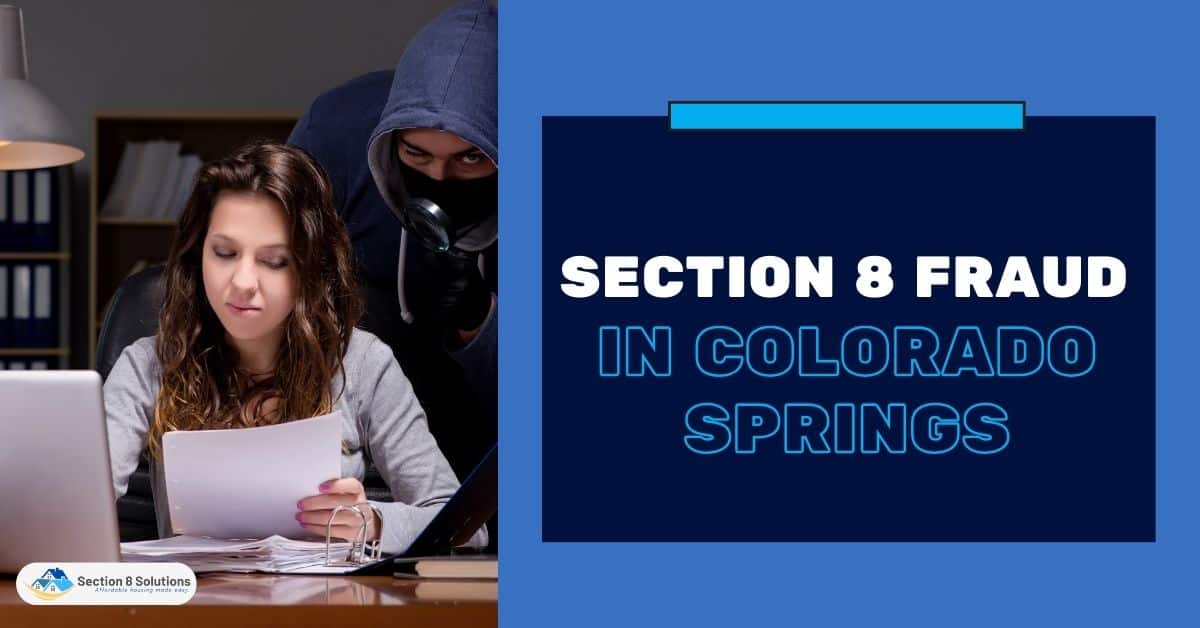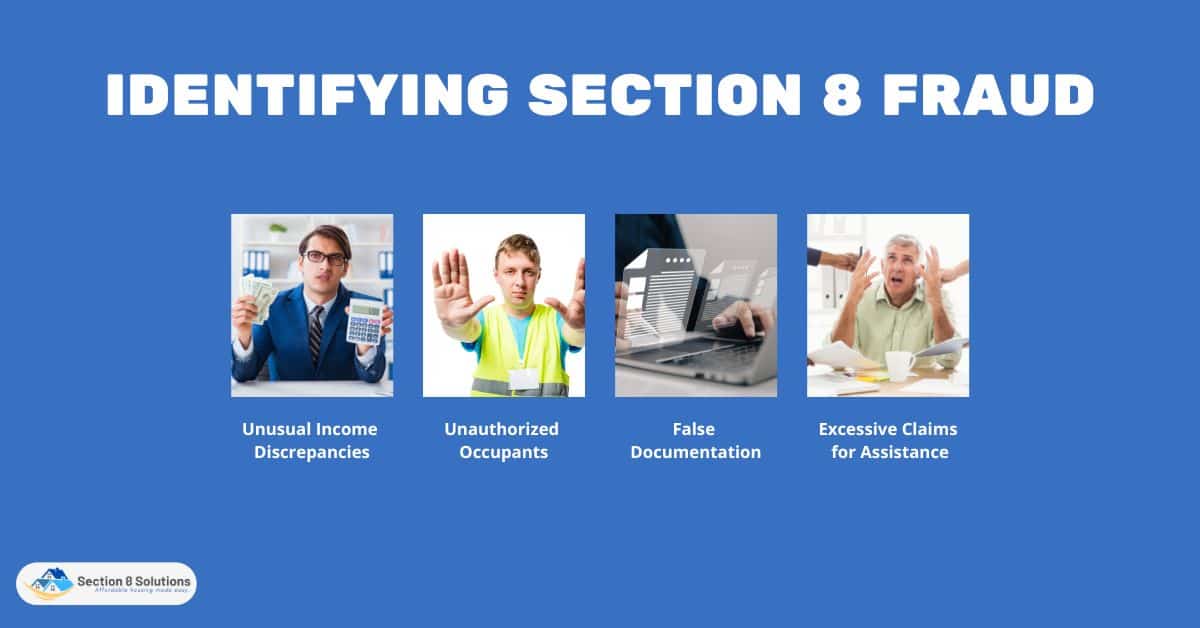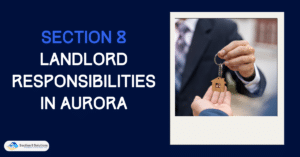Section 8 fraud in Colorado Springs poses a significant challenge to the integrity of housing assistance programs. Understanding the signs of fraudulent activities is crucial for both tenants and authorities to maintain fairness and accountability. In this blog, we’ll delve deeper into the issue, discussing prevention, reporting, and its impact on the community.
In this blog, we embark on a mission to not only comprehend the essence of Section 8 housing assistance but also to uncover the hidden facets of fraud within this system.

Understanding Section 8 Housing
Section 8 housing assistance programs, managed by the U.S. Department of Housing and Urban Development (HUD), are essential for providing affordable housing to low-income individuals and families. Their primary purpose is to make safe, decent, and affordable housing accessible to those in need by offering financial aid for private rentals. This assistance not only prevents homelessness but also fosters economic stability, allowing recipients to allocate more income to crucial needs like food, healthcare, and education.
To qualify for Section 8, applicants must meet specific eligibility criteria, including income, legal residency, and background checks. The program’s income limit, often tied to the area’s median income, plays a central role in determining eligibility. Furthermore, applicants must be U.S. citizens or have eligible immigration status, and some criminal convictions may disqualify them. In Colorado Springs, Section 8 housing is a vital resource, with many recipients benefiting from this support to secure stable housing.

Types of Section 8 Fraud
Within the realm of housing assistance programs, Section 8 stands as a beacon of support for those facing financial hardship. In this exploration, we will uncover the intricacies of Section 8 fraud, dissecting its various forms, and illuminating real-life cases right here in Colorado Springs.
1. Underreporting Income
Underreporting income is a deceptive practice where some individuals intentionally manipulate their financial information to gain larger housing vouchers through Section 8 programs. This scheme involves falsely diminishing their reported earnings or concealing additional assets to secure more financial assistance than their actual need demands.
2. Unauthorized Occupants
Housing fraud takes a troubling turn when unregistered individuals occupy Section 8-assisted properties without meeting the program’s eligibility criteria. Unauthorized occupants are individuals who often remain undisclosed to housing authorities, residing in such properties without undergoing the necessary income verification or compliance checks. This deceitful act leads to a misallocation of precious resources, as these unauthorized individuals may not qualify for the assistance they receive.

3. False Documentation
False documentation is a common strategy employed by fraudulent Section 8 applicants to bolster their eligibility claims. These applicants submit counterfeit documents such as fabricated pay stubs, lease agreements, or utility bills as part of their application process. By doing so, they aim to deceive housing authorities into believing they meet the program’s requirements.
Recognizing the multifaceted nature of Section 8 fraud is essential for safeguarding the program’s integrity. By shedding light on these deceptive practices and illustrating their real-life consequences in Colorado Springs, we aim to raise awareness and encourage collective efforts to combat this issue.
Impact of Section 8 Fraud
Section 8 housing assistance programs are a lifeline for those facing financial hardships, providing access to affordable housing. However, when fraud taints these programs, the consequences ripple across the community.
| Consequences | Description |
|---|---|
| Reduced Resources for Eligible Recipients | Fraud diverts resources, leaving genuinely eligible individuals and families with reduced support. |
| Financial Implications | Fraud increases costs for taxpayers and government agencies, diverting funds from essential services. |
| Legal Consequences | Perpetrators of Section 8 fraud may face penalties like fines, imprisonment, or eviction from programs. |
Section 8 fraud’s impact extends beyond individuals, affecting the community at large. Recognizing these consequences can drive collective efforts to prevent and address fraud, safeguarding the effectiveness of housing assistance programs and equitable resource distribution.
Identifying Section 8 Fraud
Section 8 housing programs are designed to help those in need, but when fraudulent activities occur, they can undermine the integrity of these vital initiatives. In this guide, we will empower you with the knowledge to identify signs of Section 8 fraud and provide practical tips for tenants, landlords, and neighbors to spot and report fraudulent activities effectively.

- Unusual Income Discrepancies: Recognize irregularities in reported income that seem inconsistent with the individual’s lifestyle or employment status.
- Unauthorized Occupants: Be vigilant for signs of unregistered individuals living in Section 8-assisted properties without proper approval.
- False Documentation: Scrutinize any documents that appear forged or fabricated, such as pay stubs, lease agreements, or utility bills.
- Excessive Claims for Assistance: Pay attention to applicants or recipients who seem to receive a disproportionately large amount of housing assistance.
By becoming informed and vigilant, we can collectively combat Section 8 fraud, ensuring that housing assistance programs fulfill their intended purpose of aiding those truly in need while deterring and addressing fraudulent behavior.
Preventing Section 8 Fraud
Preventing fraud in Section 8 housing is paramount to maintaining the integrity of the program and ensuring that resources reach those in genuine need. In this guide, we will provide practical advice on preventing Section 8 fraud, emphasizing the vital roles of landlords, property managers, and community awareness in safeguarding the program.
- Stringent Verification: Implement thorough income and eligibility verification processes for tenants, requiring documentation such as pay stubs, tax returns, and bank statements.
- Regular Inspections: Conduct routine inspections of Section 8 properties to ensure that the number of occupants matches the lease agreement and that the living conditions comply with program guidelines.
- Communication: Maintain open lines of communication with tenants, addressing concerns promptly to foster trust and transparency.
- Training and Education: Provide training to property management staff on recognizing signs of fraud and proper reporting procedures.
- Screen Tenants Carefully: Screen prospective tenants rigorously, checking references, and rental history, and conducting background checks.
- Report Suspected Fraud: If you suspect fraudulent activity, report it to your local housing authority or HUD office promptly. Cooperation is vital in preventing fraud.
- Compliance with Program Rules: Ensure compliance with Section 8 program rules and regulations, maintaining accurate records and documentation.
Preventing Section 8 fraud is a shared responsibility that involves rigorous verification, cooperation between landlords and tenants, and active community engagement. By working together and staying vigilant, we can help maintain the integrity of Section 8 housing programs and ensure that resources are directed to those who genuinely need assistance.

Conclusion
Section 8 fraud is a significant issue that can have devastating consequences for the recipients, taxpayers, and the community at large. It’s essential to understand its various forms, recognize the signs of fraudulent activities, and take steps to prevent it from happening. In this guide, we’ve explored Section 8 housing assistance in Colorado Springs and delved into the complex facets of fraud in this system.












